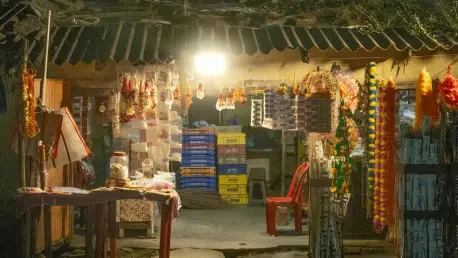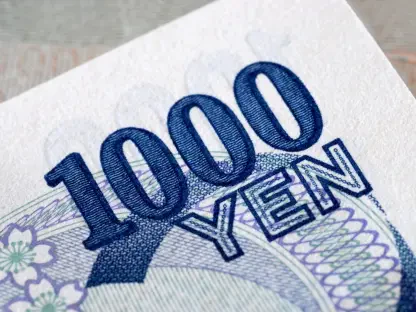In the heart of Havana, a troubling scene has unfolded as street vendors, long a vital part of the city’s informal economy, find themselves at the center of a stringent police operation. Around the bustling Agromercado de Tulipán in Plaza de la Revolución, vendors selling everything from fresh produce to cigarettes have faced confiscation of their goods and even arrests. This crackdown, part of a broader national exercise for crime prevention, has sparked intense debate about the balance between state control and individual survival. While the Cuban government frames these actions as essential for maintaining order and enforcing regulations, many citizens see them as a harsh overreach that targets the most vulnerable. Amid an ongoing economic crisis marked by inflation and shortages, these vendors often provide essential goods that the state struggles to supply. The tension between authority and necessity sets the stage for a deeper look into why such measures are being taken and what they mean for Havana’s struggling population.
State-Driven Order and Regulation
The Cuban government’s rationale for the recent crackdown on street vendors in Havana centers on the need to uphold legal standards and ensure social stability. Under the leadership of Governor Yanet Hernández, local authorities have emphasized that operations like the one at Tulipán are crucial for enforcing rules around public sales of food and goods. This aligns with a national directive from President Miguel Díaz-Canel, who has advocated for social discipline during the IV National Exercise for Crime Prevention and Confrontation. The initiative is presented as a way to reorganize the economic landscape and promote citizen tranquility amid widespread challenges like blackouts and water shortages. By targeting informal vendors, the state aims to curb unregulated commerce, which it views as a threat to order. Additionally, policies such as the mandatory use of Fiscal Bank Accounts (CBA) for private businesses are enforced to enhance transparency and traceability of financial transactions, reflecting a broader push for economic control.
Beyond the immediate crackdown, the government’s actions reveal a deeper strategy to tighten oversight over economic activities, even at the smallest scale. The National Office of Tax Administration (ONAT) has been active in addressing tax evasion among private businesses, with penalties ranging from fines to temporary closures for non-compliance with electronic payment systems. Street vendors, often operating outside formal structures, fall into this net of scrutiny as the state seeks to formalize all economic interactions. While the official narrative frames these measures as necessary for the national economy’s health, they also highlight a rigid approach to governance. The focus on legality often overshadows the reality that many Cubans rely on informal markets to access basic necessities. This disconnect between policy goals and lived experiences fuels criticism that the state prioritizes control over addressing systemic issues like shortages, leaving vendors caught in a punitive crossfire with little room for recourse or support.
Public Backlash and Survival Struggles
On the other side of the crackdown, a wave of public discontent has emerged, painting a starkly different picture of the police actions in Havana. Witnesses and social media voices, including posts from individuals like Yuriel Fernández, have described the operation at Tulipán as disproportionately harsh, targeting people who are simply trying to earn a living by selling essential items. Many argue that the government fails to provide these goods through formal channels, forcing citizens into informal trade as a means of survival. Reports of arbitrary arrests and even physical violence during the crackdown have intensified public outrage. Critics point out that while small vendors face severe repercussions, larger issues such as drug trafficking or gender violence seem to receive less attention from authorities. This perception of misplaced priorities deepens the frustration among Havana’s residents, who see the state’s actions as exacerbating their daily struggles rather than alleviating them in a time of acute economic hardship.
The economic crisis gripping Cuba adds another layer of complexity to the public’s reaction, as street vending has become a lifeline for many amid rampant inflation and persistent shortages. For countless families, the informal market is not a choice but a necessity, providing access to food and goods that are otherwise unavailable or unaffordable through state-run systems. The crackdown, therefore, is viewed by many as an attack on their very means of subsistence, rather than a legitimate effort to maintain order. The heavy-handed tactics employed by police have sparked debates about the fairness of targeting vulnerable populations while systemic failures remain unaddressed. This growing resentment underscores a significant rift between the government’s objectives and the realities faced by ordinary Cubans, who feel that their survival is being sacrificed for the sake of control. The operation at Tulipán has thus become a flashpoint, symbolizing broader tensions over how economic challenges should be managed in a struggling society.
Economic Control Versus Individual Livelihoods
The broader trend of increasing state control over economic activities in Cuba is evident in parallel initiatives targeting not just street vendors but also private businesses. Since earlier campaigns focusing on compliance with fiscal regulations, authorities have intensified efforts to penalize tax evasion and enforce electronic payment systems. The government argues that such measures are vital for economic transparency and to prevent the drain on national resources caused by unregulated commerce. However, critics view this as an overreach designed to limit the autonomy of the non-state sector, which has grown as a critical outlet for Cubans navigating economic despair. Street vendors, often operating on the margins of this sector, bear the brunt of these policies, as their informal status makes them easy targets for enforcement. The clash between the state’s pursuit of order and the population’s need for flexible income sources reveals a fundamental conflict in priorities, with livelihoods hanging in the balance.
This ongoing struggle between authority and necessity is emblematic of Cuba’s larger economic and social challenges, where repressive measures often fail to address root causes. The government’s focus on enforcing regulations through crackdowns and financial oversight, while rooted in a desire for stability, overlooks the structural issues driving informal trade, such as chronic shortages and inflation. Many Cubans see street vending not as a crime but as a pragmatic response to systemic failures, making the state’s punitive approach seem misdirected. The frustration stemming from these policies highlights a critical gap in understanding between policymakers and the public. As the state doubles down on control, the risk of alienating and further burdening an already strained population grows. The situation with Havana’s vendors serves as a microcosm of this tension, raising questions about how long such measures can persist without sparking greater unrest or demands for more compassionate solutions.
Reflecting on a Path Forward
Looking back, the police operation targeting Havana’s street vendors at Tulipán stood as a stark reminder of the Cuban government’s commitment to order, often at significant human cost. Led by figures like Governor Yanet Hernández and President Miguel Díaz-Canel, the crackdown was justified as a necessary step for social discipline and economic transparency, with policies like the Fiscal Bank Account mandate underscoring this intent. Yet, the confiscations, arrests, and reports of violence left a bitter mark on public sentiment, as many felt the state targeted the vulnerable while ignoring deeper crises. Moving forward, a balanced approach could involve creating formal pathways for vendors to operate legally, coupled with addressing systemic shortages that drive informal trade. Exploring dialogue between authorities and communities might also help align policies with real needs. Ultimately, the challenge lies in fostering stability without sacrificing compassion, ensuring that future efforts prioritize both order and the well-being of Cuba’s struggling citizens.









